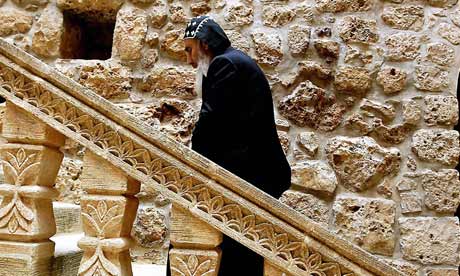From a few miles out they looked like Mesopotamia's first skyscrapers, a cluster of silhouettes towering over blood-red farmland. It was only when the cassock-clad monk steered us up the final incline that I realised what they were: gleaming three-storey villas that wouldn't have been out of place on the Costa Brava.
This was Kafro, an ancient village in Turkey's troubled and poverty-stricken south-east. Nearly two millennia ago this rugged region was largely Christian and known as Tur Abdin, the "mountains of the worshippers". A small Christian presence remained until the early 1990s, when the Turkish army cleared more than 3,000 villages to rob Kurdish rebels of cover. Expelled alongside the Kurds were Syriacs – also called Aramaeans – a Semitic minority speaking Aramaic and following a branch of eastern Christianity.
Several Syriacs joined me, their clothes and mix of languages indicating years spent in Germany and Sweden. I picked through Kafro's ruined church accompanied by Lukas, a stocky middle-aged builder, and Isa, a young photographer. A decade of litter carpeted the flagstone floor. "When we have the money, we'll rebuild," said Lukas, gesturing sadly.
He led the resettlement of the village in 2005 after working as a plumber in Stuttgart for 25 years. "Exile wasn't an option. This is the only place we feel at home," he explained. Yet there was more than a hint of Europe in the town they'd restored with its stolid villas sat behind high fences. We entered Lukas's villa and feasted on beef stew and chilled homemade wine. I met the village head. "We're Christian, and Christianity is important to us," he told me, supping sweet tea, a single nod to Turkish convention. "But we want the world to think of us as a people – as Aramaeans – with our own history, our own language and a right to live here."
The Syriacs' new wealth and isolation represented an easy target, he said. Legal wrangling over Christian land and the nearby monastery of Mor Gabriel had convinced many Syriacs that the government aimed to dispossess them a second time. "Everything can change in a moment here. We live with our eyes wide open," said Kafro's leader. With that he switched on the plasma TV and we watched army helicopters circle the mountains near Hakkari.


